2 August 2021
Philomena Franz
Holocaust Survivor
Testimony on the occasion of 2 August 2021, European Holocaust Memorial Day for Sinti and Roma
Mo tiknipe sas ćaćes laćho. Barilom miśto ande miri famìlia. Me somas i maj tikni ta koćinen sas man but aj pal odova gelom k-i śkòla. Va, aj paleder me phralesqe avilo o lil te ʒal k-i àrmia. Saas ande berśa kana trebuja te ʒal k-i àrmia aj sas and-o Baden-Baden k-o baràke aj odothe kerda buti, kerda pi buti, kerda pesqe duj berś e armiaqe, aj sikilo sar lurdo, sar soldàto ta pal odova inklistilo. Aj paleder pharrilo o maripe ta ov sas and-i angluni grùpa k-o frònti. Va, aj atòska vi man akharde k-o sevipe aj trubuja te kerav buti ande jekh fabrìka. Avilo amenqe jekh lil and-i kutìa e pośtaqi, sikavdom les tuqe. Trebuja te ʒas vi k-o Gestapo, sas te keras obligàcia prinʒaripnasqi, no ʒalas sa miśto. Odolesqe so mo phral sas k-o frònti. Kadia on naśti oven sas but bilaćhe mança. No e averen, savorren deportuin sas len sarkon dives. O Ʒuta, savorre deportuime, ćaćes sas jekh ʒungalo vaxt. Na ʒanav so xuterde o gaʒe sa kadalaθar. Sas ʒuklane, aj pal odova, jekh dives avilo o Gestapo. Mo śerutno e siklǎripnasqo sas les jasva k-o jakha. Naśti vakerda mança but, sadaj phenda manqe: "Philo, si duj murśa tele save kamen te vakeren tuça. No me àba dikhlom sas kotar i fejastrin kotar i uprutni etàźa e firmaqi, aj dikhlom sas o sèmno e Gestaposqo p-o vordon. Aj ʒanglom atùnci kaj nas te maj irinǒvav khere. Nas te maj dikhav me dia. Mi daj sas atùnci korkorri khere ta naśti phenav tumenqe sar ondili pal odova. Me pal odova sòmas and-o Auschwitz. Na maj dikhlom khanikas vekeder, Naśti maj keravas ćòmoni. Bićhalde amen and-o kàmpo e familienqo. Śaj phires sas pe sa o than, ʒas sas ande sarkon baràka te dikhes val sas varekon odothe. Dikhlom me kako savo sas les śtar ćhave. Lesqi rromni muli sas àba aj ov sas korkorro. Phendom lesqe: "So keres korkorro akate?“ O ćhave savorre gele sas k-o krematoriùmi aj pal odova pal o maripe na maj dikhlom me kakos, ni ćhave, khanć. Sa gelo. Naśti phenes khanć, sas so dukhavno, naśti te arakhes o vòrbe. Naśti te patǎs, na patǎl pes no si ćaće. Me sinom korkorri gevaj kaj aćhilom ʒivdi aj areslom ande akala berśa aj nakhlom sa akava. Kaj si man pànda o sèmno p-i musi. Si man pànda o nùmero akate. Akate; 10550. Maj nas dòsta amenqe te sikavas amaro baʒ, na. trebuja vi de śtamponen amen, sar e ʒivutren. Dikhes, si man i śtàmpa ìnke p-i zervi musi ʒi avdives. Sinom jekh gevaj so dikhlom aj ʒivdom akava traśvalo vaxt Kadia pherdili mi godi te inklistlom akaθar ʒivdi, Bi te aćhovav ka sikavav e manuśen aj kadia vi kerdom. Akava kerdom pe sa o thana pe sa i Germània. Phirdom sathanes ak diom godi “Kon aver śaj te mothovel?” Maj sas jekh cèrra save inklistile, save inkerde pen. Aj gelom k-i śkòla Śajisardom te kidav man miśto aj phendom: “Akana ka keres akaja buti k-o śkòle”. On musaj te ʒanen, o terne generàcie, so ondilo odova vaxt, sosqe on den o drom ta formisaren formisaren akava Them aj aʒukerav but kadalaθar, sosqe vareso kadia na maj trebul te ovel palpalem ande amaro Them. So si vasno, isi sar sikavas e manuśen so ondilo. Śaj te sikavas len verver ćhande. Me alosardom i laćhi rig i rig e pakǎmasqi ta manglom te ovel rekonciliàcia. Na kamlom te ovel xir, xoli, no dud, akava kerdilo, no bi xolǎqo aj bi akuzaciaqo. Me kamlom te phenav e ternenqe: kamav te phenav lenqe kaj kana siam xolǎme, xasaras. O kamipe si o maj ućo sa e xaćarimatenqo. O kamipe si sa vaś amenqe. Si sar, sar te phenav sar jekh tikno, tikno sumnakaj. Bi kamipnasqo, jekh manuś naśti ʒivel. Kana si bi kamipnasqo, o manuś na maj ʒanel so kerel sosqe na maj ʒanel so si laćho aj so si nasul. Musaj te siklǒvas kotar amare dośa. Gasavo vareso na trebul te ovel palpalem ande amaro Them, sosqe te mukhlam te ovel, no me na patǎv te ovel. Amen ʒivas ande jekh mesto aj demokratìko Them avdives aj sarkon śaj te thovel anglal pesqe hakaja, te ʒangla kaj kerde lesqe doś; atùnći śaj te ʒas aj phenes: "He, śun, akava tu naśti naśti te keres akava.“ Ʒanes, me patǎv kaj amen, o Sìnte, na ʒivdam nikeh var meste sar avdives. Si amen amaro mestipe, si amen vipal mol sar vi sarsavo themutno aj manqe akava si o maj vasno.
Yes, and then I was conscripted into service, I had to work in a factory. We got a letter in the letterbox, I showed it to you. We also had to go to the Gestapo, we had to do recognition duty, but it always went well. Because I had my brother at the front. So they couldn’t act so badly with me. But the others, they were all deported every day. The Jews were all deported, so it was a terrible time. I don’t know what people got out of it. It was cruel, but then one day the Gestapo came.
My training supervisor had tears in his eyes. And then he said to me, and he didn’t say much more anyway: “Philo, there are two men downstairs who want to talk to you.” But I had already looked out of the window from the topfloor of the company and I saw the Gestapo sign on the car. Then I knew I wouldn’t be coming home. I wouldn’t see my mother any more. My mother was then alone at home and I can’t say how she was afterwards.
I was then in Auschwitz. I didn’t see anyone anymore, I couldn’t do anything… We were sent to the family camp. You could walk all over the place, run into every barrack to see if anyone was still there. I saw my uncle again who had four children. His wife had already died and he was alone. So I said, “What are you doing here alone?” The children all went to the crematorium and after the war I never saw my uncle again, no children, nothing. Everything gone. You can’t say anything, it was so cruel, you can’t find words. So it’s unbelievable, unbelievable but really true.
I am the only contemporary witness who has already reached that age and has been through all that. Who still has a stamp on her arm. I still have the number here. Here; 10550. It was no longer enough for us to present our badge or what, no. No, they had to, and like animals, they stamped us. You see, I still wear the stamp on my left arm today. I am still a contemporary witness and I lived through those terrible times. So I made up my mind that as long as I get out of here, I will never give up doing educational work and that’s what I did.
So I did that everywhere, all over Germany. I travelled around and I thought “Who else is going to do it?” there are few who still got out, who could resist. And I went to school, I could articulate myself well and I thought, “Now you do it in schools”. They have to know, the young generation, what happened back then, because they are directing and shaping this country for once and I expect a lot from that, because something like that must never happen again in our country.
What matters is the way in which people are taught what happened. It could be done in many variations. I chose the good side, the reconciliation side and I wanted to have reconciliation. I didn’t want to have hate, but enlightenment, that had to be, but without hate and without accusation.
What I wanted to say to the young people: I want to say that when we hate we lose. Love is the very highest of feelings. Because love is everything to us. It is a, a like, like a little, like a jewel. Without love, man cannot live. When he is without love, he is capable of anything, because he no longer knows what is good and evil. We must learn from our mistakes. Something like that must never happen again in our country, because if we allow something like that to happen, but I don’t think so.
We live in a free democratic state today and everyone is allowed to put forward their rights, if they know I have been wronged then they can go and say. “Here, hello you can’t do that.” You know, I think we Sinti have never lived more freely than we do today. We have our freedom, we are worth just as much as any citizen and that is decisive for me.
Mothovimàta e genocidesqe praʒivdenqe
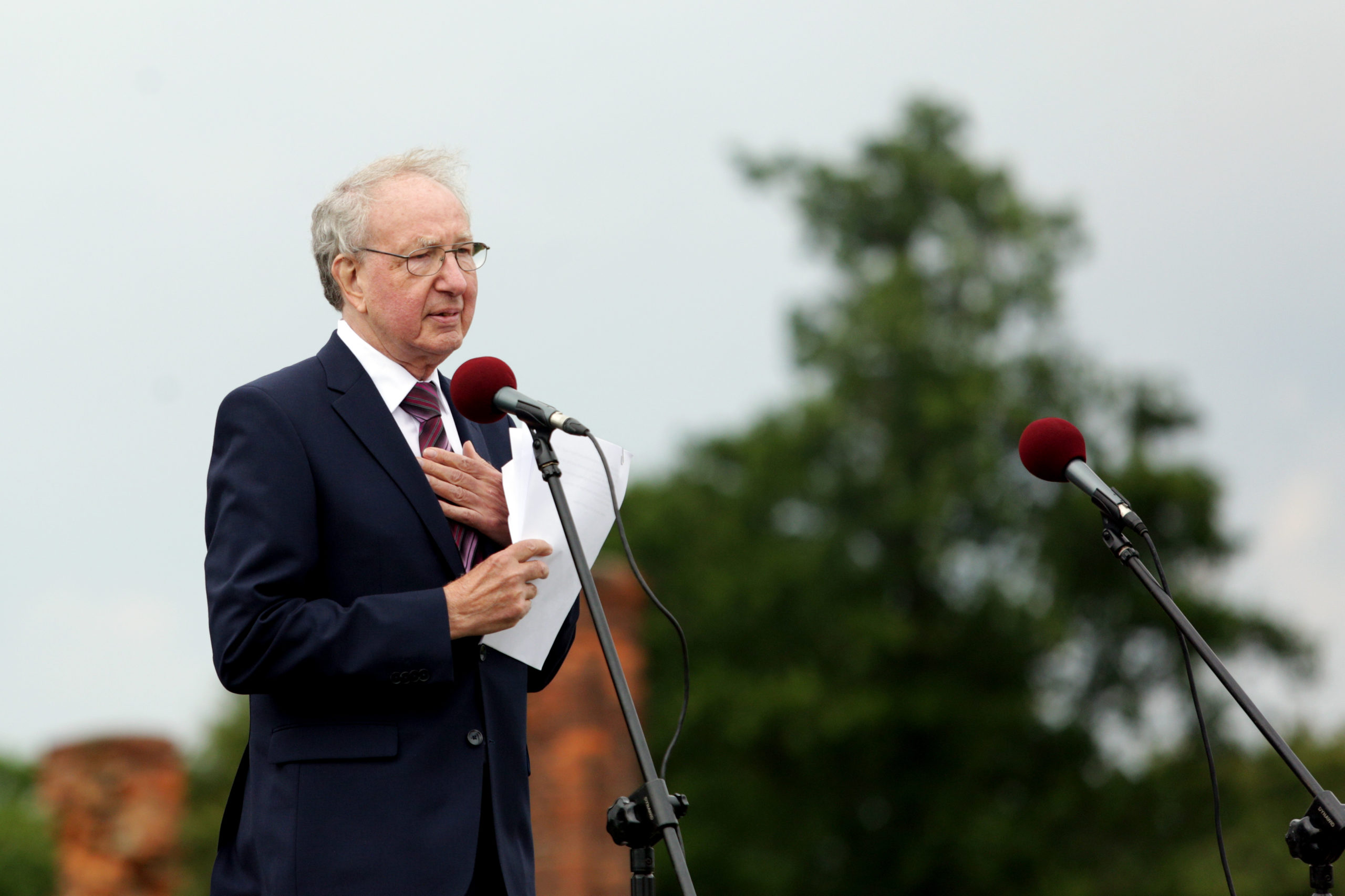
Werner Friedrich
Praʒivdi e genocidesqi
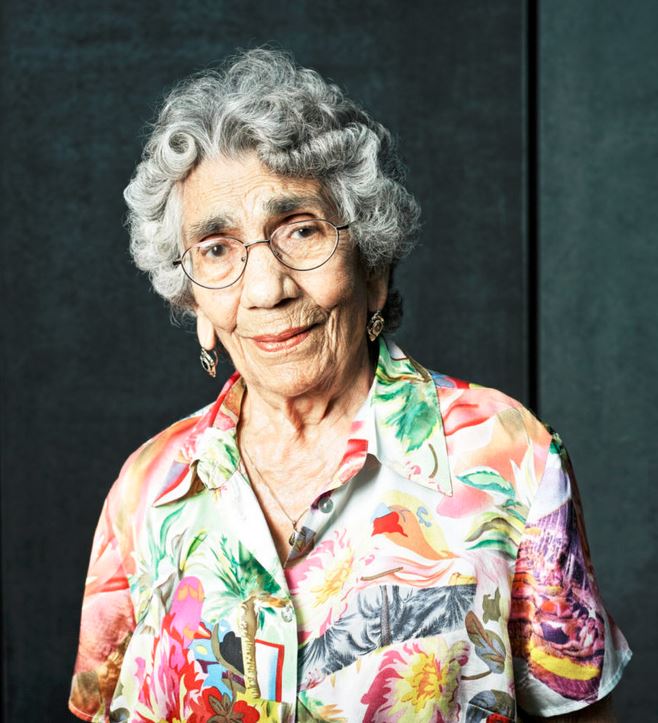
Zilli Schmidt
Praʒivdi e genocidesqi
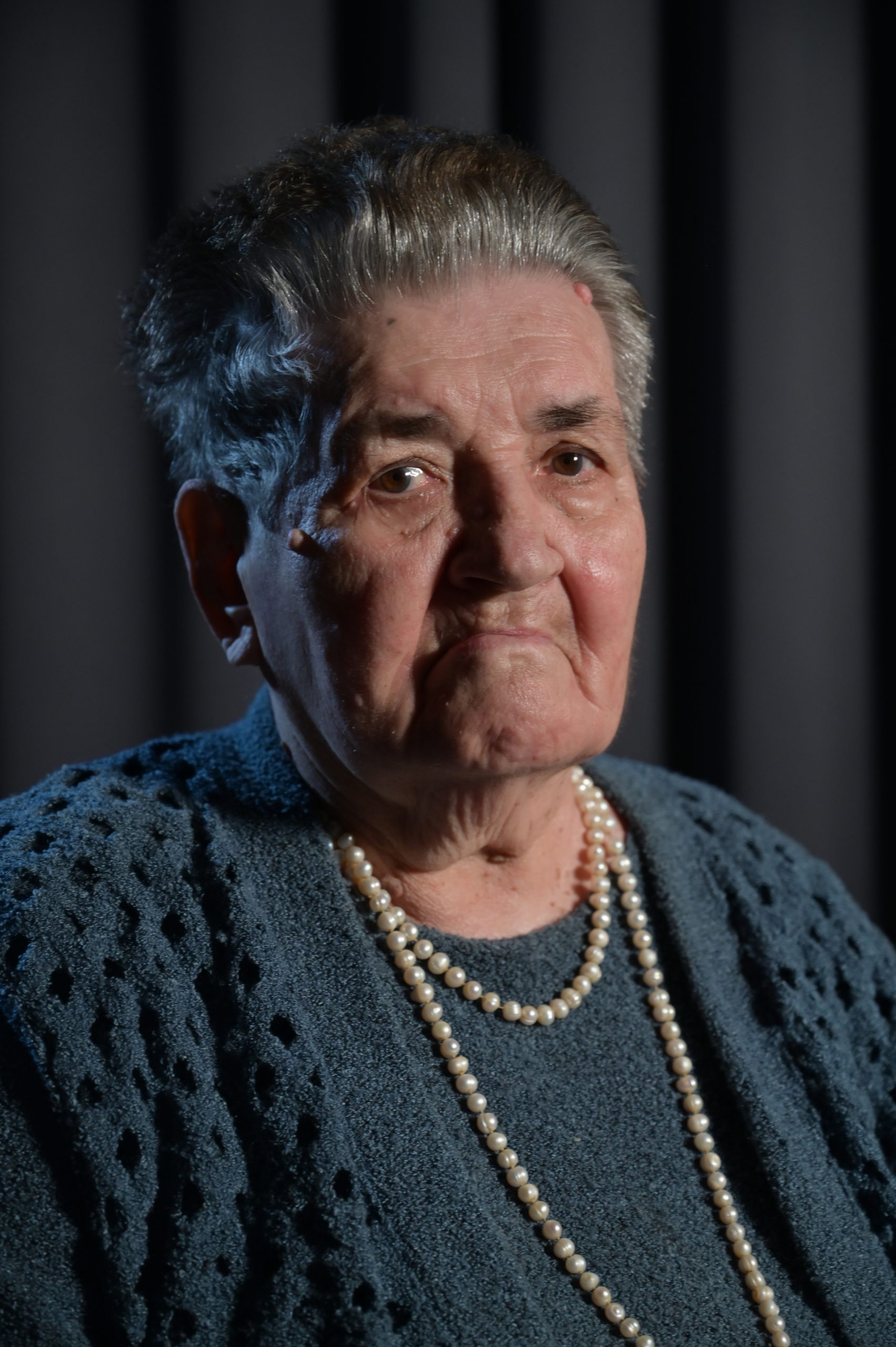
Krystyna Gil
Praʒivdi e genocidesqi
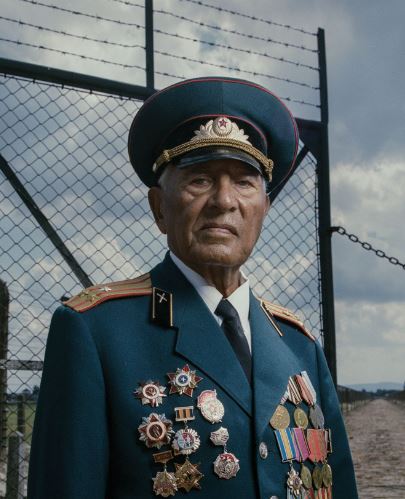
Ivan Bilashchenko
Praʒivdo kotar o genocìdi aj xelado anglal and-i Loli àrmia
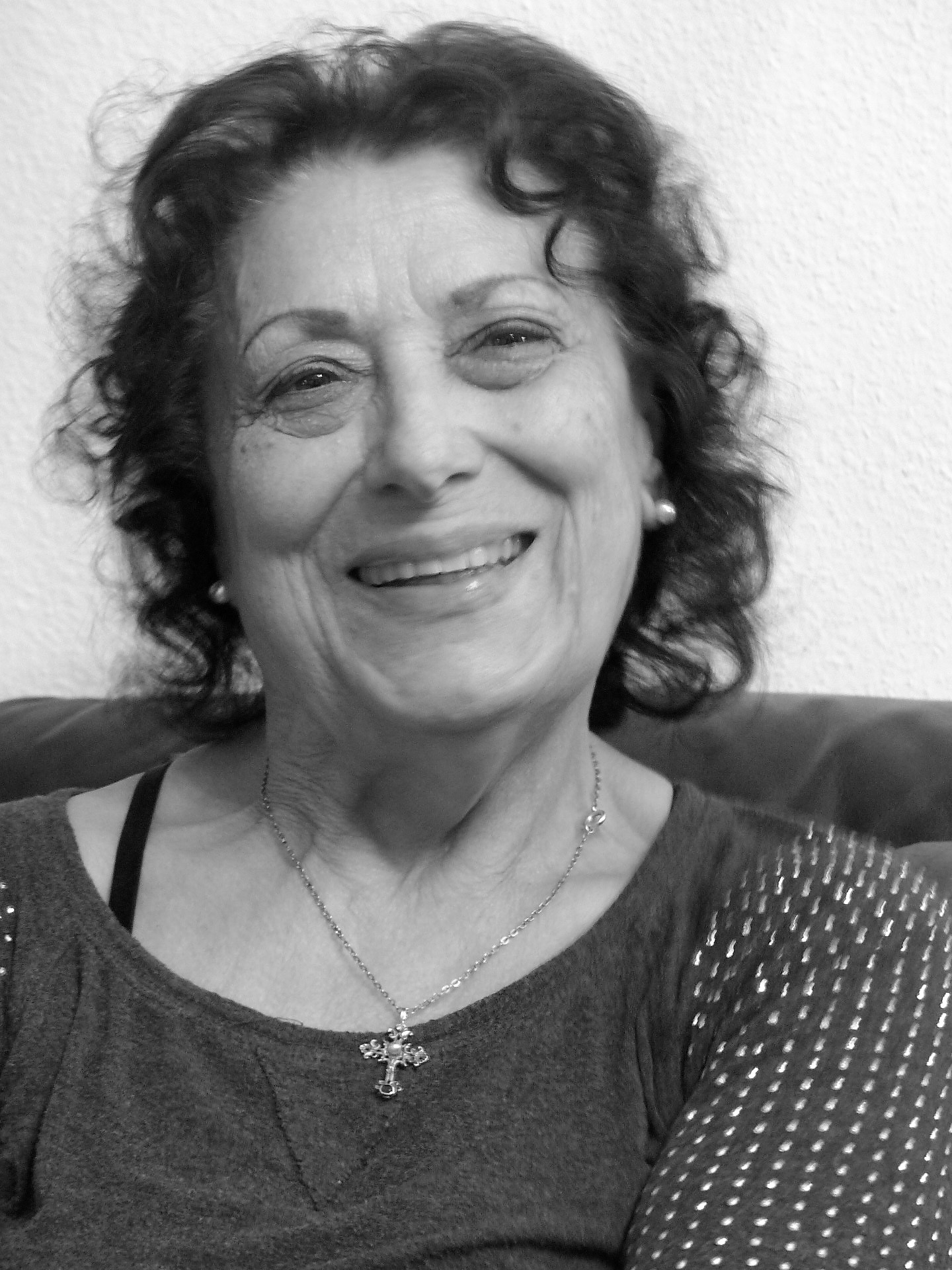
Rita Prigmore
Praʒivdi e genocidesqi










